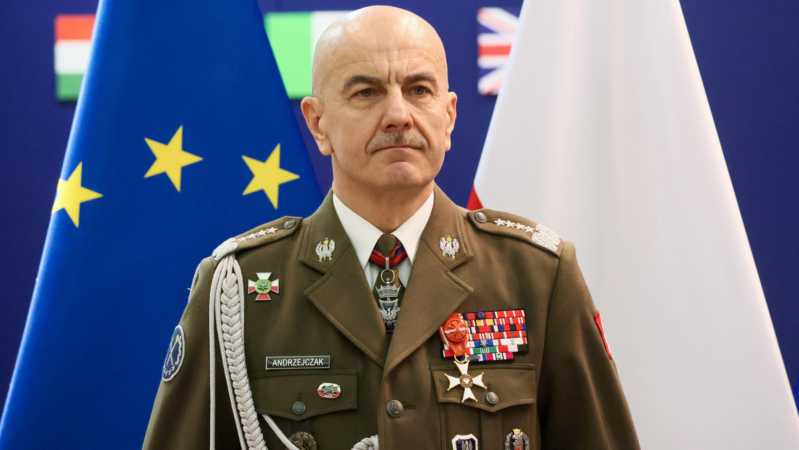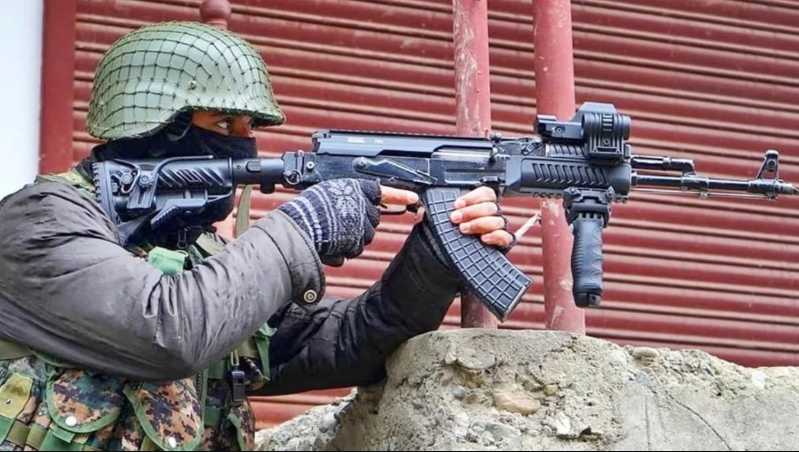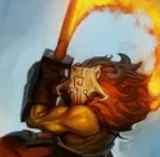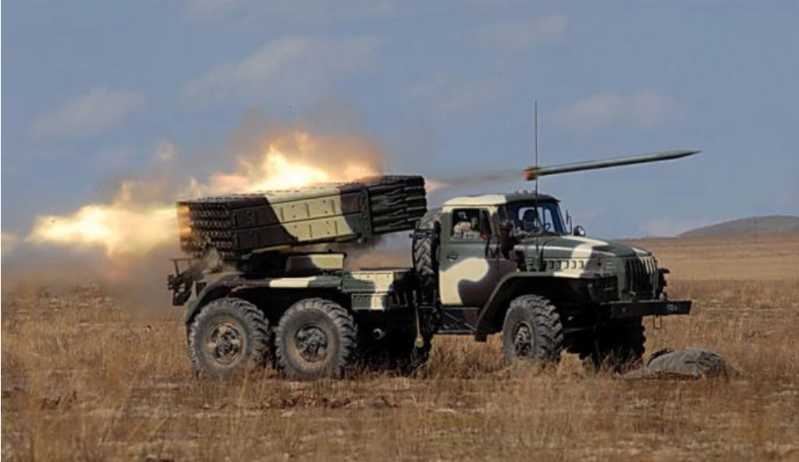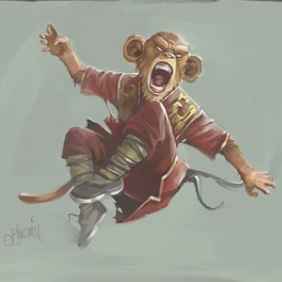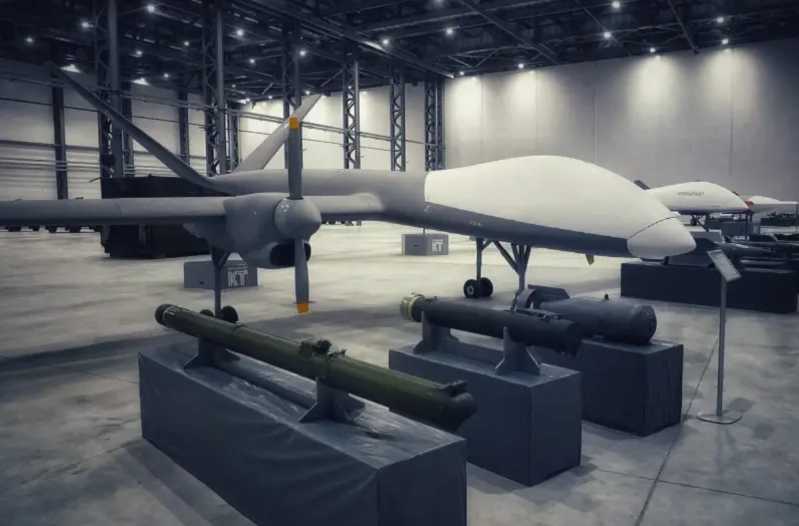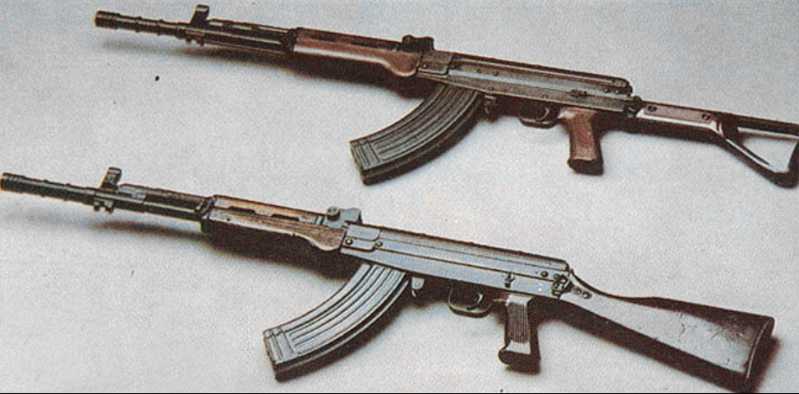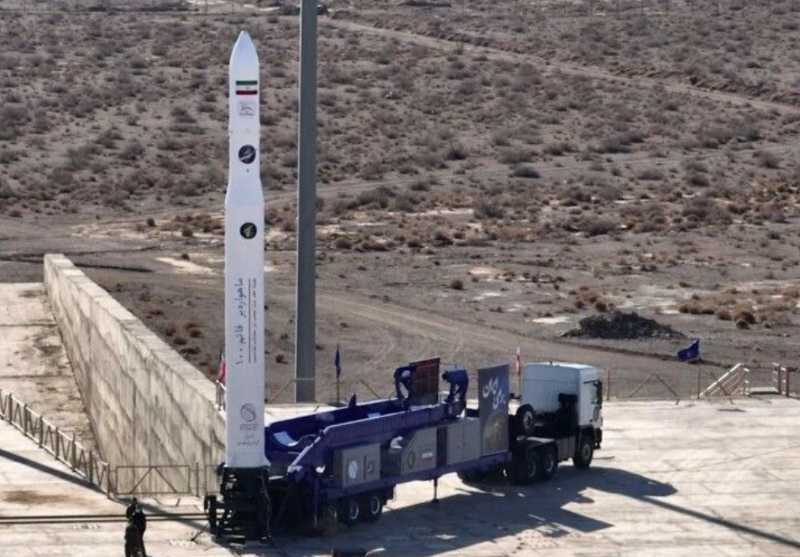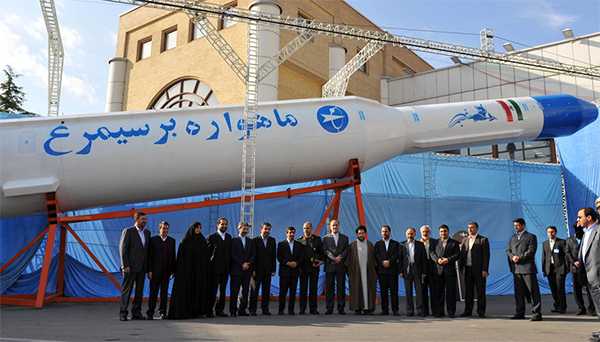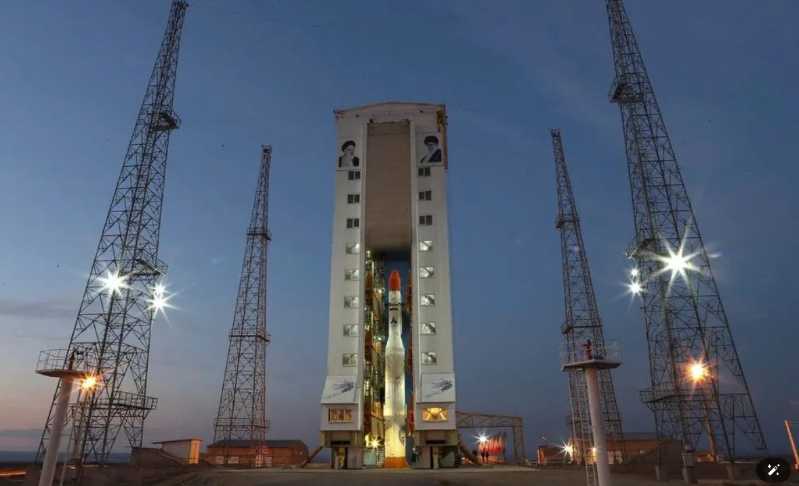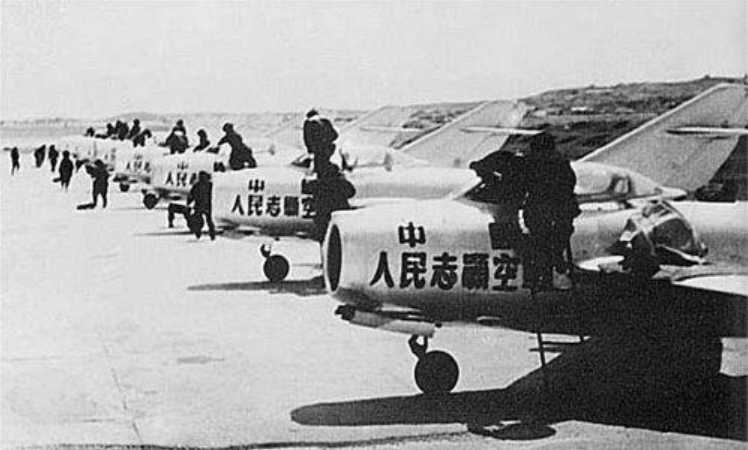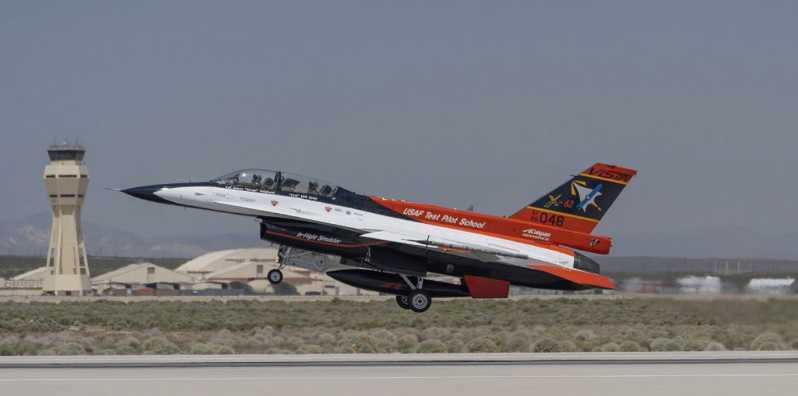Born in a Catholic family, he has a deep foundation in Eastern and Western European military theory
On December 29, 1967, Andrejczak was born in a Roman Catholic family in Świdnica, Silesia Province in southern Poland. He is a devout Catholic. It is reported that the Silesia Province was once occupied by Austria and Germany. Although the total population is second only to Mazovia Province, it is known as the province with the highest urbanization and population density in Poland; Świdnica City is the center of Poland’s machinery manufacturing industry, mainly producing transportation vehicles, and its per capita income ranks among the top in Poland.
Andrejczak has a deep foundation in Eastern and Western European military theory. After graduating from high school, he was admitted to the Polish Armored Forces Military Academy (located in Poznan) to study tank combat and was familiar with large-scale tank combat. During his service, he went to the Polish National Defense Academy to study advanced commander courses, which laid a solid theoretical foundation for his promotion to a senior general of the Polish Army. In addition, he also went to the Czech Army National Defense College and the British Royal School of Defense Studies for further studies, familiarized himself with the military theories of Eastern and Western Europe, and called for the East and West Europe to strengthen the "exchange" of military theories.
Although he graduated from the Polish Armored Forces Military Academy, he was assigned to the infantry unit as a platoon leader after graduation, which can be said to be "professional mismatch". But he soon returned to the armored forces, from tank company commander to tank battalion commander and deputy brigade commander of the armored cavalry brigade, and was proficient in driving the Russian-made T-72 and German-made "Leopard"-2 series main battle tanks. Later, he served in the combat troops as high as the commander of the 12th Mechanized Division, and finally directly promoted from the commander of the main combat division to the chief of the general staff, holding the highest military command of the Polish army. He pushed for reform internally and promoted equipment procurement: externally, he represented the Polish military, actively promoted and deepened military cooperation with NATO allies, especially the United States, called for strengthening NATO military integration and strengthening military presence in the eastern wing of NATO; continued to maintain "high vigilance" against Russia and called for military assistance to Ukraine.
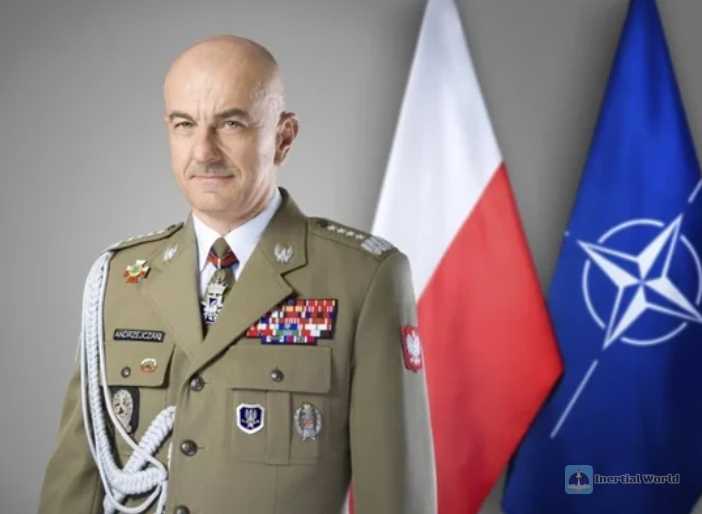
He has been deployed overseas many times and has rich practical experience
Andrejczak started as an infantry platoon leader and has been deployed overseas many times to participate in actual combat. He has rich practical experience. After graduating from the Polish Armored Forces Military Academy, Andrejczak was awarded the rank of second lieutenant in the army and served as an infantry platoon leader of the 2nd Infantry Regiment (stationed in the town of Giżycko, Warmia-Masuria Province in northeastern Poland, which has been disbanded). In 1993, he was promoted to the commander of the tank company of the 15th Mechanized Brigade of the 16th Mechanized Division. In 1996, he was transferred to the reconnaissance and combat departments of the 4th Armored Cavalry Brigade (disbanded). He has experience as a platoon leader, company commander and brigade-level staff officer.
In 1998, Andrejczak was transferred to the position of Chief of Staff of the Polish-Lithuanian Peacekeeping Forces Joint Battalion, and in 2001 he became the deputy battalion commander of the battalion. On January 1, 2003, he was promoted to the commander of the 1st Armored Battalion of the 15th Mechanized Brigade, and concurrently served as the deputy director of the Operations Bureau of the Army Forces Command. It is reported that in recent years, the military cooperation between Poland and Lithuania has gradually strengthened, with a trend of integrated development; in addition to the Polish-Lithuanian Peacekeeping Forces Joint Battalion, there is also the Polish-Lithuanian Joint Brigade, which aims to jointly respond to the "military threat" from Russia.
On March 20, 2003, the United States, Britain, Australia, and Polish troops invaded Iraq, and the Iraq War broke out. As the commander of the 1st Armored Battalion, Andrejczak supported the US military in launching a war against Iraq, personally led the battalion to Iraq to participate in the war, and launched a strike against Saddam’s Iraqi troops. Because of his "excellent command", he was awarded an "Iraq Star" medal. After overthrowing Saddam’s regime, he concurrently served as the director of the Operations Department of the Polish Mission Force in Iraq, and continued to carry out deployment tasks in Iraq.
In addition to being deployed to Iraq, Andrejczak was deployed to Afghanistan twice, serving as the director of the Operations Department of the Polish Task Force and Emergency Force in Afghanistan, commanding the Polish army to cooperate with NATO allies such as the United States, Britain and Germany to fight against the Taliban in Afghanistan: he personally killed a Taliban battlefield commander, and was awarded an "Afghanistan Star" medal.
After being promoted to general, he embarked on a fast track in his career
After being promoted to brigadier general, Andrejczak embarked on a fast track in his military career, successively serving as brigade commander and division commander. He gradually became well-known in the Polish Army and was deeply respected by former Chief of the General Staff General Mieczyslaw Czernych (Chief of the General Staff from May 7, 2010 to May 6, 2013) and General Mieczyslaw Gokul (Chief of the General Staff from May 7, 2013 to January 31, 2017) 13
After being promoted to deputy commander of the 34th Armored Cavalry Brigade of the 11th Armored Cavalry Division (stationed in Zagan, Lubusz Province, western Poland) in 2008, Andrejczak was transferred to the 2nd Mechanized Army (Krakow, Krakow Province, southern Poland, disbanded on July 1, 2014) in 2010. He was promoted to brigadier general in 2011 and became the commander of the 17th Mechanized Brigade in 2012, officially taking charge of the main brigade of the Polish Army. It is reported that the 17th Mechanized Brigade is stationed in Międzyzec, Lublin Province, eastern Poland, and is also affiliated with the 11th Armored Cavalry Division. It is one of the three main combat brigades of the division, responsible for the defense of the eastern region and supporting the Ukrainian army in combat when necessary.
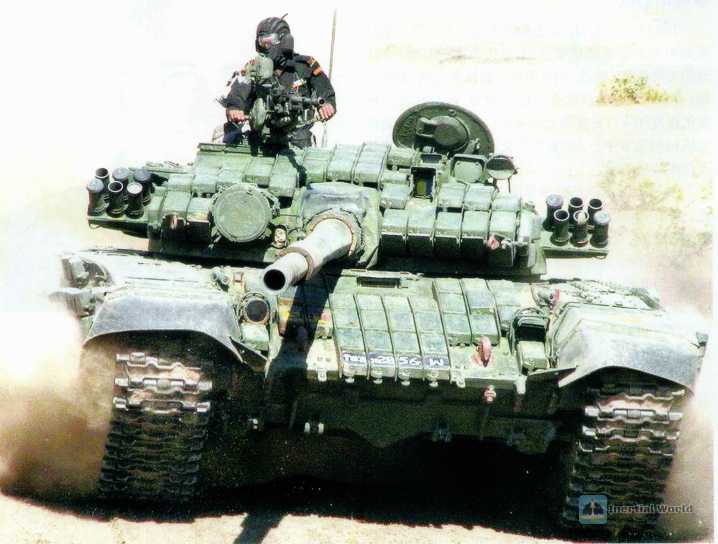
On December 8, 2014, Andrejczak was transferred to the position of first deputy commander and chief of staff of the 12th Mechanized Division. On May 2, 2016, he was promoted to the commander of the division and promoted to major general of the army on August 15. It is reported that the 12th Mechanized Division is stationed in Szczecin. It was established in 1919 and is one of the four main divisions of the Polish Army (namely the 11th Armored Cavalry Division, the 12th, 16th and 18th Mechanized Divisions). It is incorporated into the NATO Multinational Northeast Army and has the 12th Headquarters Battalion, the 2nd Mechanized Brigade, the 7th Coastal Defense Brigade, the 12th Mechanized Brigade, the 5th Artillery Regiment, the 8th Air Defense Regiment, the 8th Logistics Regiment, etc. It is responsible for guarding the security of the northwestern border area bordering Germany and preventing possible invasion from Germany. At the same time, as part of the NATO Multinational Northeast Army, it supports the defense of the three Baltic countries. As the commander of the division, Andrejczak went to the NATO Joint Training Center to attend a meeting on August 31, 2017.
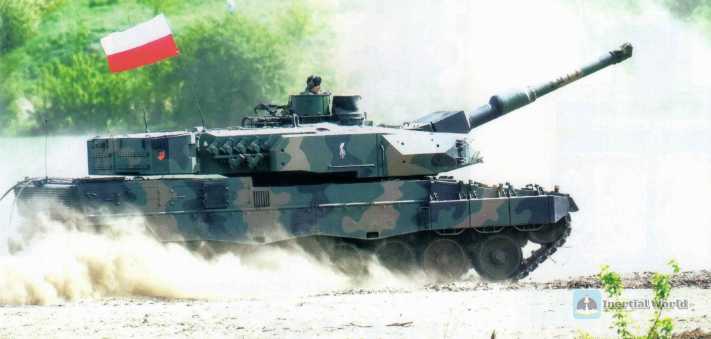
Served as Chief of the General Staff, vigorously promoted internal reforms and external exchanges
Throughout his military career, Andrejczak has made great achievements. It is reported that he won 1 Military Cross Medal 2, 1 Commander Cross Medal, 1 "Iraq Star" Medal, 1 "Afghanistan Star" Medal, 1 Motherland Armed Forces Service Medal, 1 National Defense Medal, etc., which accumulated a strong promotion capital for his ascension to the throne of Chief of the General Staff. On July 2, 2018, Andrejczak succeeded General of the Army Lezek Sulawski as the 10th Chief of the General Staff of the Third Republic of Poland, and was promoted to Lieutenant General of the Army at the same time. On November 12, 2019, he was promoted to General of the Army again. He was promoted from Lieutenant General to General of the Army in just one year and four months, a promotion speed that is rare in the Polish Army. On October 10, 2023, Andrejczak resigned from the post of Chief of the General Staff due to a dispute with Defense Minister Mariusz Błaszczak over weapons aid to Ukraine. He was succeeded by Lieutenant General of the Army Wislaw Kukula, Commander of the General Command (promoted to General of the Army on November 9, 2023). His resignation was supported by the then Commander of the Operational Command, Lieutenant General Thomas Petrovsky, who resigned at the same time.
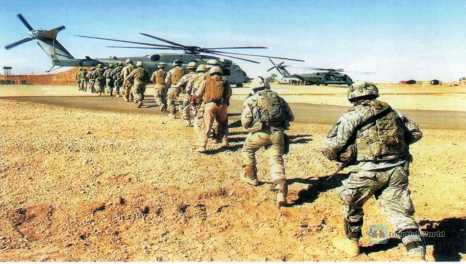
As the Chief of the General Staff, Andrejczak’s primary task is to lead and reform the General Staff and the various services. It is reported that the Polish General Staff was established on October 28, 1918. With Poland’s accession to NATO, the department followed the reform of the US Joint Staff and established a chief of general staff (general), a deputy chief of general staff (lieutenant general), and two deputy chiefs of general staff (major generals). It is under the jurisdiction of the Organization and Manpower Establishment Bureau (J1, director colonel), the Reconnaissance and Intelligence Analysis Bureau (J2, director brigadier general), the Armed Forces Operation Planning and Training Bureau (J3/J7, director brigadier general), the Logistics Bureau (J4, director colonel), the Armed Forces Development Planning and Project Bureau (J5 director colonel), the Management and Command Bureau (J6, director colonel), the Material Planning Bureau (J8, director colonel), the Secretariat (director colonel), the Legislative Bureau (director colonel), etc. It is the highest staff agency for the Polish Army’s combat command and troop construction, and is under the leadership of the Ministry of National Defense. In addition to leading and reforming the General Staff, Andrejczak is responsible for implementing the combat decisions of the President and the Minister of Defense, commanding the combat operations of the Polish Army, Navy, Air Force, Special Forces and Territorial Defense Forces. He is the de facto highest military commander of the Polish Army, commanding a Polish Army of 160,000 people. The General Staff and the General Command (mainly for construction, the current commander is Lieutenant General Jaroslaw Mika) and the Operations Command (mainly for combat, the current commander is Lieutenant General Maciej Kritz) constitute the highest command authority of the Polish Army.
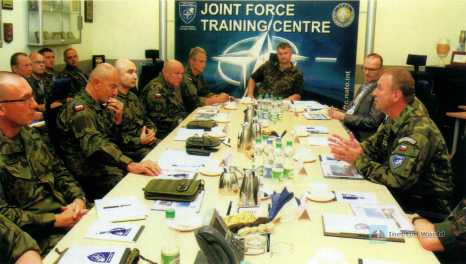
Externally, Andrejczak represented the Polish military in various NATO and EU meetings to strengthen NATO allies’ military cooperation and NATO military integration, and spoke on behalf of the Polish military in the international arena to expand the Polish Army’s international influence and call for military assistance to Ukraine. After taking office, he represented Poland at the NATO Defense Commanders’ Meeting every year, calling for strengthening military cooperation among NATO allies and strengthening military presence in the eastern flank of NATO. On October 1, 2018, he met with then-Chairman of the Joint Chiefs of Staff of the US Marine Corps General Dunford, and on November 17, 2022, he met with visiting Chairman of the Joint Chiefs of Staff of the US Army General Milley to hold consultations on Polish-American military cooperation and cooperation with NATO allies. On May 19, 2022, he attended the NATO Defense Commanders’ Meeting and met with Janusz Adamczak, Lieutenant General of the Polish Army and Director of the NATO International Military Staff, emphasizing that NATO member states should strengthen military cooperation and strengthen military presence in the eastern flank of NATO. On January 18, 2023, he attended the NATO Defense Commanders’ Meeting and met with Admiral Bauer of the Netherlands, Chairman of the NATO Military Committee, and once again emphasized the military cooperation of NATO countries and called for strengthening military support for Ukraine. Although he called for military assistance to Ukraine, he pessimistically stated at a meeting of the Polish National Security Agency on April 28 that Poland no longer had any more ammunition to provide to Ukraine and hoped that other NATO allies would increase their military assistance to Ukraine.
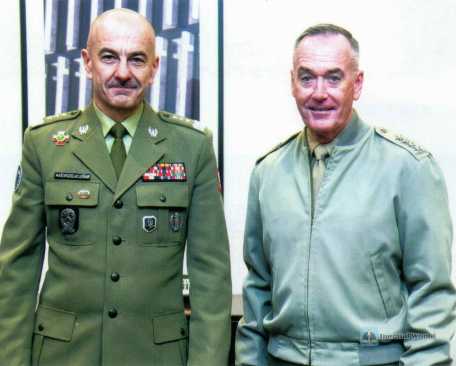
During Andrejczak’s tenure as Chief of the General Staff, the Polish Armed Forces strengthened the reform of the General Staff and various services, promoted the modernization of the forces, strengthened military cooperation with NATO allies, provided a large amount of military assistance to Ukraine, and expanded the Polish Army’s global influence.


